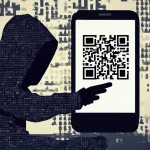Top Insights
New Snake Keylogger Threat: What You Need to Know and How to Stay Safe

Cybersecurity experts at Fortinet have issued a warning about a dangerous new keylogger called Snake Keylogger, which has already been involved in over 280 million blocked infection attempts. This threat, which is spreading rapidly, demonstrates the widespread nature of the attack and its global reach.
The Scope of the Snake Keylogger Attack
Snake Keylogger is particularly active in countries like China, Turkey, Indonesia, Taiwan, and Spain, though its presence is significant worldwide. The malware is typically distributed through phishing emails containing malicious attachments or links, and it is primarily designed to steal sensitive information from popular web browsers such as Chrome, Edge, and Firefox. The keylogger can log keystrokes, capture credentials, and monitor clipboard activity. It then uses SMTP (email) and Telegram bots to exfiltrate the stolen data.
Evasion Techniques and Dangerous Capabilities
One of the key features that makes Snake Keylogger so dangerous is its use of advanced evasion techniques. The malware hides its malicious code within AutoIT scripts, making it difficult for static analysis tools to detect. This clever tactic allows the keylogger to bypass traditional antivirus solutions, making it especially hard to spot and neutralize.
How to Protect Yourself
While the threat is substantial, there are ways to reduce the risks. Fortinet advises users to be cautious with unsolicited emails, especially those with unexpected attachments or links. Users should avoid opening suspicious email messages and ensure their antivirus software is up to date. Additionally, keeping other software patched and updated is crucial in preventing infections.
The cybersecurity community must continue to educate users on identifying phishing attempts, social engineering tactics, and the importance of securing personal data to help combat these types of attacks.
Keyloggers as a Gateway to More Dangerous Attacks
Keyloggers like Snake Keylogger are particularly dangerous because they give attackers access to a wealth of sensitive information, including login credentials, which can be used for further attacks such as ransomware, extortion, and identity theft. Fortinet did not identify the specific attackers behind Snake Keylogger or the industries they primarily target, but the threat remains significant.















Leave a comment